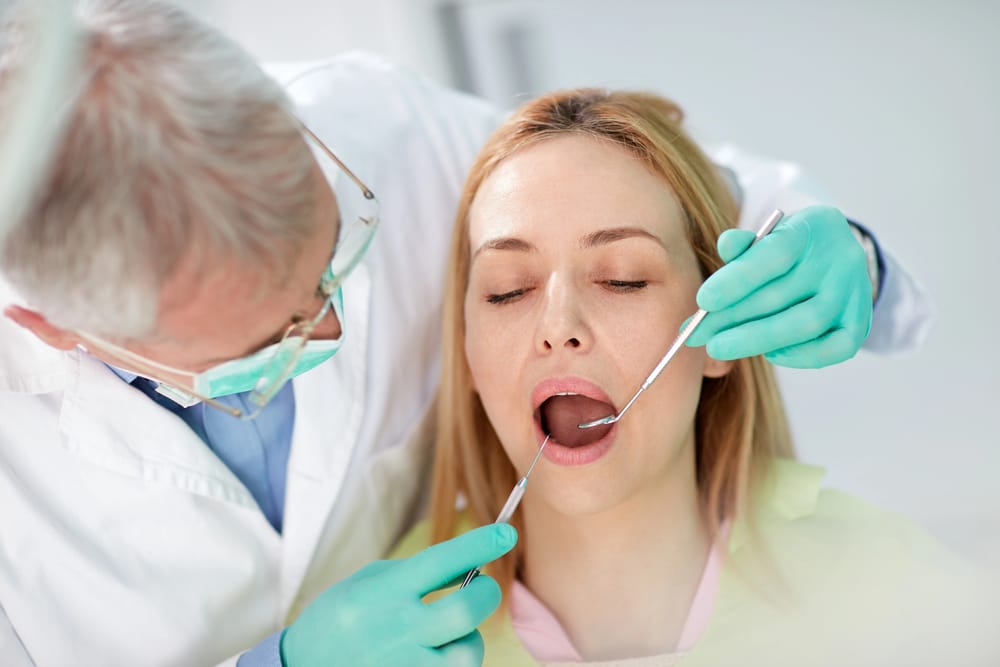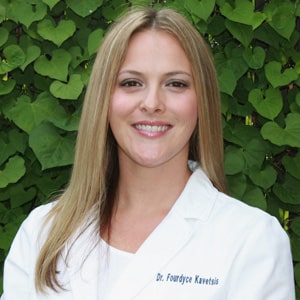Article At A Glance
- Regular screenings enable early detection, boosting survival rates to 80-90%.
- The screening process is simple, painless, and can be completed during routine dental visits.
- Oral cancer can affect anyone, but certain risk factors significantly increase the chances of developing it.
Routine cleanings and checkups are the cornerstone of maintaining good oral health. However, another crucial component of dental care that is often overlooked is oral cancer screenings. These screenings are vital in detecting early signs of oral cancer and safeguarding your overall health. Below, we’ll explore why oral cancer screenings are essential, who should get screened, what to expect during a screening, and proactive measures you can take to reduce your risk.
Why Oral Cancer Screenings Are Essential
Oral cancer may not be as widely discussed as other forms of cancer, but its impact is significant. In the United States, approximately 54,000 people are diagnosed with oral cancer annually, according to the Oral Cancer Foundation. This includes cancers of the lips, tongue, cheeks, floor of the mouth, and throat.
The key to successful treatment lies in early detection. When oral cancer is caught in its early stages, patients have an 80-90% survival rate. Unfortunately, many cases go undiagnosed until they reach advanced stages, when treatment becomes more invasive and outcomes are less favorable.
Oral cancer screenings allow dentists to identify abnormal tissue, lesions, or other warning signs that could indicate precancerous or cancerous conditions. These screenings are quick, painless, and could be life-saving.
Who Should Get Screened for Oral Cancer?
Anyone can develop oral cancer, but certain factors may increase your risk. Regular screenings are especially important for individuals who fall into the following categories:
- Tobacco users: Smoking cigarettes, cigars, or pipes, as well as using chewing tobacco, increases the risk of oral cancer significantly.
- Heavy alcohol consumers: Excessive alcohol consumption is another major risk factor, particularly when combined with tobacco use.
- Individuals over 40: Oral cancer is more common in older adults, though younger people can also be affected.
- People with a history of HPV (human papillomavirus): Certain strains of HPV are linked to an increased risk of oropharyngeal cancers.
- Those with a family history of cancer: A genetic predisposition can elevate your risk.
Even if you don’t fit into these categories, discussing oral cancer screenings with your dentist is a good idea. They can help determine the proper screening schedule for your needs.
What Happens During an Oral Cancer Screening?
An oral cancer screening is a simple and non-invasive process that can typically be completed during a routine dental visit. Here’s what to expect:
- Visual Inspection: Your dentist will examine your lips, tongue, cheeks, gums, roof of the mouth, and throat for any abnormal tissue, such as red or white patches, sores that won’t heal, or unusual lumps.
- Physical Examination: Using gloved hands, your dentist will gently feel your neck, jaw, and lymph nodes for swelling or irregularities.
- Specialized Tools (if necessary): Sometimes, your dentist may use unique lights or dyes to enhance the visibility of abnormal areas. For example, fluorescent lights can help detect changes in tissue that may not be visible to the naked eye.
The entire process typically takes just a few minutes and involves no discomfort. If your dentist identifies any suspicious areas, they may recommend a biopsy or refer you to a specialist for further evaluation.
How Often Should You Get an Oral Cancer Screening?
The frequency of oral cancer screenings depends on your risk factors. Here are some general guidelines:
- Low-risk individuals: Your dentist may perform a screening annually as part of your routine dental exams for those with no significant risk factors.
- High-risk individuals: If you fall into one or more high-risk categories (e.g., tobacco use, HPV exposure), your dentist may recommend screenings every six months or more frequently.
It’s important to note that symptoms of oral cancer can sometimes develop quickly. If you notice any unusual changes in your mouth—such as persistent sores, difficulty swallowing, or unexplained pain—don’t wait for your next scheduled screening. Contact your dentist immediately.
Proactive Measures You Can Take to Prevent Oral Cancer
While regular screenings are essential, there are also steps you can take to lower your risk of developing oral cancer:
- Maintain a Healthy Lifestyle
- Avoid tobacco products entirely, and limit alcohol consumption.
- Eat a balanced diet of fruits, vegetables, and whole grains, supporting oral and systemic health.
- Stay hydrated to promote saliva production, which helps protect your mouth from harmful bacteria.
- Practice Good Oral Hygiene
- Brush your teeth twice a day with fluoride toothpaste and floss daily.
- Visit your dentist regularly for cleanings and checkups. Routine dental care can help catch issues before they escalate.
- Protect Your Lips
- Prolonged sun exposure can increase the risk of lip cancer. To shield your lips from harmful UV rays, use a lip balm with SPF.
- Get Vaccinated for HPV
- Vaccination against HPV can reduce your risk of HPV-related cancers, including oropharyngeal cancer.
- Be Alert to Changes
- You can perform self-examinations at home by checking your mouth, tongue, and throat for unusual changes or sores. Early detection is key.
Why Choose Affinity Dental for Oral Cancer Screenings?
At Affinity Dental, we’re committed to more than just keeping your teeth and gums healthy—we’re dedicated to protecting your overall well-being. Our experienced team understands the importance of early detection in the fight against oral cancer.
When you visit Affinity Dental for an oral cancer screening, you can expect:
- Comprehensive care: We perform thorough visual and physical examinations to identify abnormalities.
- Advanced technology: Our state-of-the-art tools enhance our ability to detect early signs of cancer.
- Patient education: We’ll take the time to answer your questions, explain your risk factors, and provide personalized recommendations for preventive care.
By taking proactive steps to improve your oral health, you can reduce your risk of serious health issues.
Schedule Your Oral Cancer Screening Today
Oral cancer screenings are a small investment of time that can significantly impact your health. Whether you’re due for your next screening or have concerns about oral health, Affinity Dental is here to help.
Contact us today at 773-904-7079 to schedule your appointment. Let’s work together to keep your smile and health strong for years to come. For more information about oral cancer screenings and preventive dental care, visit our website or stop by our office in Chicago. Your health is our priority.


